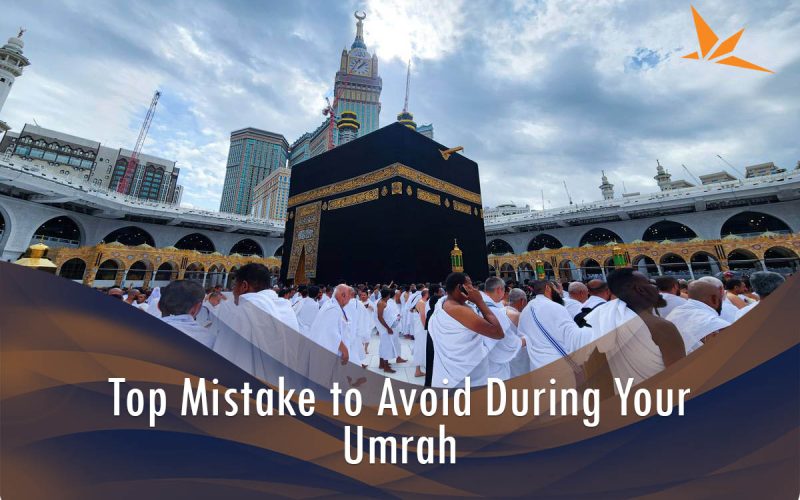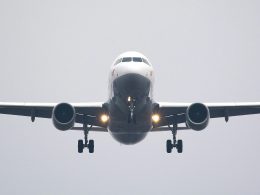Introduction
Performing Umrah in August can be a rewarding spiritual experience. However, the summer heat, busy crowds, and travel challenges make thorough planning essential. Many pilgrims rush through preparations and end up facing problems like sunstroke, long waits, and stressful logistics. In this guide, we’ll highlight the top 5 mistakes to avoid when planning Umrah in August. By steering clear of these common pitfalls, you’ll ensure your journey is safe, smooth, and focused on worship. Let’s dive in and set you up for a fulfilling Umrah trip this summer.
Top 5 Mistakes to Avoid When Planning Umrah in August
1. Underestimating the August Heat
Why It’s a Problem
August in Saudi Arabia often brings temperatures above 40°C (104°F). High heat can lead to dehydration, heat exhaustion, or even heatstroke—conditions that disrupt your spiritual focus and can be dangerous.
How to Avoid It
- Dress Smart: Wear lightweight, breathable fabrics (cotton or moisture-wicking blends). Loose white garments help reflect sunlight.
- Stay Hydrated: Carry a water bottle and drink regularly, even before you feel thirsty. Electrolyte drinks can help replace lost minerals.
- Plan Your Tawaf Timing: Try performing Tawaf around dawn or after sunset when temperatures are cooler.
- Use Sun Protection: Apply high-SPF sunscreen, wear a wide-brimmed hat or umbrella, and use UV-blocking sunglasses.
- Rest in Shade: Between rituals, find air-conditioned rest areas in the Haram or nearby mosques to cool down.
By preparing for the heat, you protect your health and maintain energy for worship.
2. Delaying Booking Flights and Accommodation
Why It’s a Problem
August falls in the low season for Umrah, but popular hotels near the Haram still fill up quickly, especially around weekends and local holidays. Last-minute bookings often mean longer walks or higher prices.
How to Avoid It
- Book Early: Aim to reserve flights and rooms at least two to three months in advance. This secures better rates and location choices.
- Choose Proximity: Opt for hotels within a 10-minute walk to Masjid al-Haram. Even a 5-minute difference can save precious time and energy.
- Flexible Dates: If possible, arrive midweek to avoid peak check-in days like Friday and Sunday.
- Use Trusted Agents: Work with reputable travel agencies specializing in Umrah packages—they often have reserved blocks of rooms.
- Confirm and Reconfirm: A week before departure, confirm your flight and room bookings to catch any changes or errors.
Early planning reduces stress and lets you focus on spiritual preparation.
3. Skipping Pre-Umrah Health Preparation
Why It’s a Problem
Ignoring health checks and vaccinations can lead to illness during your pilgrimage. August’s heat and crowded rituals put extra strain on the body, making good health essential.
How to Avoid It
- Medical Checkup: Visit your doctor at least a month before travel for a full health assessment, including blood pressure and heart checks.
- Required Vaccinations: Ensure you have the latest meningitis and flu shots, as required by Saudi authorities.
- Pack a Health Kit: Include basic first-aid supplies, electrolytes, pain relievers, bandages, and any prescription medications in their original containers.
- Adjust Diet Early: In the weeks leading up to travel, start eating lighter meals and reduce caffeine and spicy foods to avoid stomach upsets.
- Train Physically: Walk or climb stairs daily to build stamina for the long walks and steps of Tawaf and Sa’i.
By prioritizing health, you minimize the risk of disruptions and can fully devote yourself to worship.
4. Ignoring Essential Umrah Ritual Knowledge
Why It’s a Problem
Incomplete or incorrect knowledge of the Umrah rituals leads to confusion, wasted time, and potential mistakes that require repetitions or corrections.
How to Avoid It
- Study the Steps: Learn the sequence—Ihram, Tawaf, Sa’i, and Halq/Taqsir—before you go. Use reputable guides or apps that explain each step in simple language.
- Attend Workshops: Many local mosques or community centers offer pre-Umrah seminars that walk through rituals with demonstrations.
- Carry a Pocket Guide: A small booklet with concise instructions and maps of Haram’s key areas helps you navigate without relying on guides.
- Follow Signage: Pay attention to English and Arabic signs in the Haram for Tawaf entrances, Sa’i routes, and exit points.
- Travel with an Experienced Group: If you’re new to Umrah, consider joining a guided group where leaders handle logistics and answer questions.
Clear knowledge of rituals saves time and ensures you complete Umrah correctly and confidently.
5. Overlooking Transportation and Local Logistics
Why It’s a Problem
Crowded streets, taxi scams, and unfamiliar layouts can turn simple commutes into stressful ordeals, eating into your rest and worship time.
How to Avoid It
- Plan Transfers: Book reliable airport transfers through your travel agent or your hotel in advance. Avoid unofficial vans or tuk-tuks.
- Use Ride-Hailing Apps: Apps like Careem and Uber operate in Mecca and Medina. They are safer and often more cost-effective than street taxis.
- Learn Basic Routes: Familiarize yourself with main roads between your hotel, Haram, Jabal al-Nour, and Jabal ar-Rahmah to avoid getting lost.
- Walk When Possible: Walking strips around the Haram are shaded and well-patrolled. This saves money and helps you acclimate to the area.
- Monitor Prayer Times: Plan short walks or errands between prayers to minimize waiting in queues or traffic jams.
Smart logistics planning keeps your focus on spiritual goals rather than travel headaches.
Bonus Tip: Embrace Patience and Flexibility
August’s heat and crowds test every pilgrim’s patience. Traffic delays, elevator queues, and prayer area crowds are inevitable. Cultivate a calm mindset:
- Set Realistic Expectations: Know that services can run late, elevators slow, and lines form at water stations.
- Practice Dhikr: Use waiting times for remembrance of Allah read Quran or recite short prayers.
- Travel Light: Carry only essentials—water, prayer beads, a small pocket Quran to ease movement.
- Be Kind to Fellow Pilgrims: Extend smiles and help others, fostering a supportive atmosphere in the Haram.
A patient, flexible attitude transforms minor setbacks into moments of spiritual growth.
Conclusion
Avoiding these top 5 mistakes when planning Umrah in August ensures your pilgrimage is safe, smooth, and spiritually rewarding. Don’t underestimate the heat—dress smart and stay hydrated. Book flights and hotels early to secure prime locations and prices. Prioritize your health with checkups, vaccinations, and physical prep. Learn the Umrah rituals thoroughly to avoid confusion. Plan your local transport to dodge traffic woes and taxi scams. Finally, embrace patience and flexibility amid crowds and delays. By following these tips, you’ll focus fully on devotion and make your August Umrah a fulfilling journey of faith and reflection.












